|
Books Should Be Free Loyal Books Free Public Domain Audiobooks & eBook Downloads |
|
|
Books Should Be Free Loyal Books Free Public Domain Audiobooks & eBook Downloads |
|
Non-fiction |
|---|
|
Book type:
Sort by:
View by:
|
By: www.mikevendetti.com | |
|---|---|
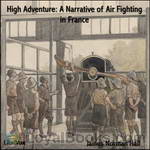 High Adventure A Narrative of Air Fighting in France
High Adventure A Narrative of Air Fighting in France
High Adventure A Narrative of Air Fighting in France by James Norman Hall; you will find this book although an exciting narrative has an unpolished feel because it was published in June of 1918 while Mr. Hall was a captive in a German POW camp. When he was captured behind enemy lines, the book was still a work in progress. The Armistice would not be reached until November of that year. Although he does not mention it in this book, Mr. Hall had already served the better part of 15 months with the British Expeditionary Forces, surviving the battle of Loos in Sept – Oct 1915, and upon which his excellent work “Kitchener’s” Mob is Based... | |
By: Jane Andrews (1833-1887) | |
|---|---|
 The Stories Mother Nature Told Her Children
The Stories Mother Nature Told Her Children
“You may think that Mother Nature, like the famous “old woman who lived in the shoe,” has so many children that she doesn’t know what to do. But you will know better when you become acquainted with her, and learn how strong she is, and how active; how she can really be in fifty places at once, taking care of a sick tree, or a baby flower just born; and, at the same time, building underground palaces, guiding the steps of little travellers setting out on long journeys, and sweeping, dusting, and arranging her great house,–the earth... | |
By: Helen Fryer | |
|---|---|
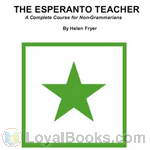 The Esperanto Teacher
The Esperanto Teacher
The international language Esperanto was first released to the world in 1887, when L. L. Zamenhof published his first book, “Dr. Esperanto’s International Language”. Since that time, many learning books have been developed to help the beginner attain a proficiency in the language. Helen Fryer’s “Esperanto Teacher” is one of the earliest of these attempts in English. Divided into 45 short and easy lessons and supplemented with sections on joining words, exclamations, compound words, arrangement... | |
By: Fridtjof Nansen (1861-1930) | |
|---|---|
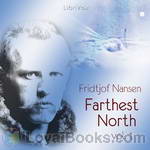 Farthest North
Farthest North
Being the Record of a Voyage of Exploration of the Ship "Fram", 1893-96 and of a Fifteen Months' Sleigh Journey by Dr. Nansen and Lieut. Johansen / by Fridtjof Nansen; with an Appendix by Otto Sverdrup | |
By: Desiderius Erasmus (1466/69-1536) | |
|---|---|
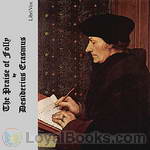 The Praise of Folly
The Praise of Folly
The Praise of Folly (Greek title: Morias Enkomion (Μωρίας Εγκώμιον), Latin: Stultitiae Laus, sometimes translated as In Praise of Folly, Dutch title: Lof der Zotheid) is a satirical essay written in 1509 by Desiderius Erasmus of Rotterdam (1466/69-1536). It is considered one of the most influential works of literature in Western civilization and one of the catalysts of the Protestant Reformation.It starts off with a satirical learned encomium after the manner of the Greek satirist... | |
 The Education of Children
The Education of Children
| |
By: Charles Ellms | |
|---|---|
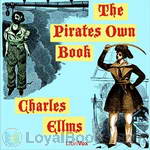 The Pirates Own Book
The Pirates Own Book
Authentic Narratives of the Most Celebrated Sea Robbers. | |
By: Saint Therese (1873-1897) | |
|---|---|
 The Story of a Soul
The Story of a Soul
Marie Francoise Therese Martin, affectionately known as ‘The Little Flower’, was born on January 2, 1873, in Alencon, France to Louis Martin and Zelie Guerin. She was the youngest and one of five surviving sisters of the nine Martin children. When Therese was 3, her mother died. Louis Martin moved his family to Lisieux to be closer to his late wife’s brother and his family. It was there that Therese’s sister, Pauline, entered the Carmel at Lisieux on October 2, 1882. Therese at that time also heard the Divine Call to religious life... | |
By: Thames Williamson | |
|---|---|
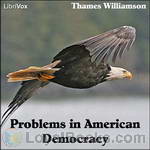 Problems in American Democracy
Problems in American Democracy
Problems in American Democracy is a very detailed, specific explanation of some of the underlying and surface problems of a democracy system of government, particularly of the American form of democracy. Though lengthy, it is a great read for people who want to learn more about different types of government and the foundations of our own government in the United States of America. | |
By: Steve Solomon | |
|---|---|
 Gardening Without Irrigation: or without much, anyway
Gardening Without Irrigation: or without much, anyway
Gardening expert Steve Solomon has written extensively on gardening techniques for the home gardener. Water conservation is the focus of this work, along with more information on how to have the healthiest plants in your garden through “fertigation”, appropriate plant rotation, and soil preparation. | |
 Organic Gardener's Composting
Organic Gardener's Composting
The art and science of composting is presented in a humorous and readable manner from the basic elements to the in-depth science. An entire chapter is devoted to composting with red worms (vermiculture), and detailed information is provided on building different types of composting units. The history of the organic gardening movement is included as well as an annotated bibliography of works on the subjects of composting and food gardening. | |
By: Saint Justin Martyr | |
|---|---|
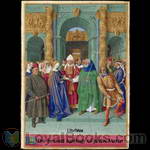 The Second Apology of Justin Martyr
The Second Apology of Justin Martyr
A defense of the Christian faith delivered by St. Justin Martyr to the Roman Senate in the second century AD | |
By: Fritz Kreisler | |
|---|---|
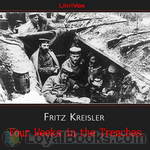 Four Weeks in the Trenches
Four Weeks in the Trenches
A brief record of the fighting on the Eastern front in the great war by a participant in that great and terrible conflict | |
By: Carl von Clausewitz (1780-1831) | |
|---|---|
 On War
On War
A classic work on military strategy by a veteran of the Napoleonic Wars. The author's style is dialectical: he makes two strong but opposing statements and then draws them together to describe many facets of war. Free of technical jargon, and suitable for modern readers. This audiobook is based on a 1909 English translation. | |
By: John S. Mosby (1833-1916) | |
|---|---|
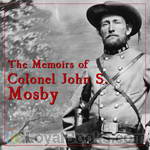 The Memoirs of Colonel John S. Mosby
The Memoirs of Colonel John S. Mosby
This is not a work of fiction! These are the actual memoirs of a legendary leader of partisans who bedeviled the Union army for years, almost within sight of the capitol. With only a few local men under command, John Singleton Mosby’s ability to strike fast and then melt away before an effective pursuit could be organized kept the Yankee forces awake and often snarled in knots. With daring feats like capturing a Yankee general out of his bed within his defended headquarters, Mosby made his name a synonym for guerrilla warfare... | |
By: Théodule Ribot (1839-1916) | |
|---|---|
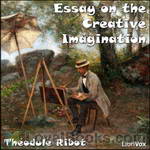 Essay on the Creative Imagination
Essay on the Creative Imagination
“It is quite generally recognized that psychology has remained in the semi-mythological, semi-scholastic period longer than most attempts at scientific formulization. For a long time it has been the “spook science” per se, and the imagination, now analyzed by M. Ribot in such a masterly manner, has been one of the most persistent, apparently real, though very indefinite, of psychological spooks. Whereas people have been accustomed to speak of the imagination as an entity sui generis, as a... | |
By: James Stephens (1882-1950) | |
|---|---|
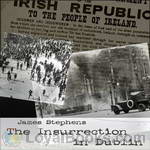 The Insurrection in Dublin
The Insurrection in Dublin
The Easter Rising was a rebellion staged in Ireland in Easter Week, 1916. The Rising was an attempt by militant Irish republicans to win independence from Britain by force of arms. This account was written by Irish novelist James Stephens, who lived and worked in Dublin at the time. | |
By: Lysander Spooner | |
|---|---|
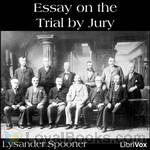 Essay on the Trial by Jury
Essay on the Trial by Jury
FOR more than six hundred years that is, since Magna Carta, in 1215 there has been no clearer principle of English or American constitutional law, than that, in criminal cases, it is not only the right and duty of juries to judge what are the facts, what is the law, and what was the moral intent of the accused; but that it is also their right, and their primary and paramount duty, to judge of the justice of the law, and to hold all laws invalid, that are, in their opinion, unjust or oppressive, and all persons guiltless in violating, or resisting the execution of, such laws... | |
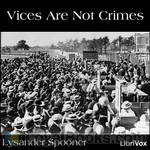 Vices Are Not Crimes
Vices Are Not Crimes
Lysander Spooner was an American individualist anarchist, entrepreneur, political philosopher, abolitionist, supporter of the labour movement, and legal theorist of the nineteenth century. Here he gives his views on the role of Governments in the private lives of their citizens | |
By: Russell Herman Conwell (1843-1925) | |
|---|---|
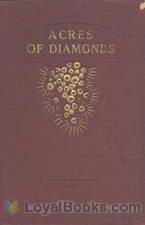 Acres of Diamonds
Acres of Diamonds
Text of famous inspirational lecture and biography of Russell Conwell, a Baptist minister and Temple University Founder | |
By: M. M. Pattison Muir (d1931) | |
|---|---|
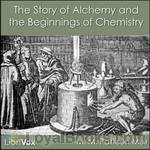 The Story of Alchemy and the Beginnings of Chemistry
The Story of Alchemy and the Beginnings of Chemistry
A light journey through the history of chemistry, from its start in the obscure mysteries of alchemy to what was, for the author, the cutting edge of the development of modern atomic theory … and whose developing blind ends we can now see with the advantage of hind sight. | |
By: Chesterton, G. K. | |
|---|---|
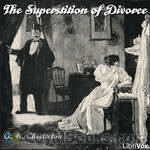 The Superstition of Divorce
The Superstition of Divorce
This short book was written in 1920, and in it Chesterton, with his usual wit and incisive logic, presents a series of articles defending marriage and indicating the weaknesses in divorce. He did this 16 year before the first Christian denomination in the world allowed it’s members to divorce. Till then Christendom was unanimous in standing against it. Chesterton saw clearly the trends of this time, and delivered this defense. | |
By: Lacy Collison-Morley | |
|---|---|
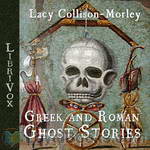 Greek and Roman Ghost Stories
Greek and Roman Ghost Stories
A non-fiction work, comparing and collecting ghost stories by Classical Greek and Republican or Imperial Roman authors. | |
By: Abner Doubleday (1819-1893) | |
|---|---|
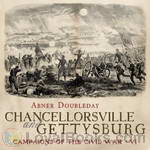 Chancellorsville and Gettysburg
Chancellorsville and Gettysburg
Abner Doubleday began the Civil War as a Union officer and aimed the first cannon shot in response to the bombardment opened on Ft. Sumter in 1861. Two years later, after a series of battles (including Antietam, where he was wounded), Doubleday took over a division in the Army of the Potomac's 1st Corps.These are his memoirs of service in two of the War's great campaigns. At Chancellorsville, a very promising start made by General Hooker against Lee's Confederate forces fell to a defeat when, in... | |
By: Xenophon | |
|---|---|
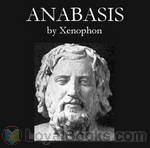 Xenophon's Anabasis
Xenophon's Anabasis
Xenophon the Athenian was born 431 B.C. He was a pupil of Socrates. He marched with the Spartans, and was exiled from Athens. Sparta gave him land and property in Scillus, where he lived for many years before having to move once more, to settle in Corinth. He died in 354 B.C. “Anabasis” is a Greek work which meane “journey from the coast to the center of a country.” This is Xenophon’s account of his march to Persia with a troop of Greek mercenaries to aid Cyrus, who enlisted Greek help to try and take the throne from his brother Artaxerxes, and the ensuing return of the Greeks, in which Xenophon played a leading role... | |
By: Lafcadio Hearn (1850-1904) | |
|---|---|
 Japan: An Attempt at Interpretation
Japan: An Attempt at Interpretation
Greece-born Lafcadio Hearn (1850 - 1904) spent decades of his life in Japan, even marrying a Japanese woman, thus becoming a Japanese citizen by the name of Koizumi Yakumo (小泉 八雲). He wrote many books on Japan, especially about its folklore. In this posthumously published book, he takes a closer look at Japan's religious history: How it developed from ancient beliefs into Shintoism, resisted suppression attempts by both Buddhism and Christianity and how – despite efforts to westernise Japan during the era known as Meiji Restoration – it remained the basis for Japanese society... | |
By: British Parliament | |
|---|---|
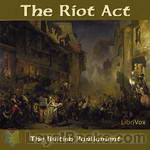 The Riot Act
The Riot Act
The Riot Act was passed by the British Parliament in 1714, the first year of the reign of George I, and came into effect in August 1715. This was a time of widespread social disturbance, as the preamble describes; the Act sought to put an end to this. A group of twelve or more people, “being unlawfully, riotously and tumultuously assembled”, would be read a proclamation; they must disperse within an hour, on pain of death. The same fate would befall anyone preventing the reading of the proclamation, or damaging buildings while on a riot... | |
By: Harold W. Fairbanks (1860-1952) | |
|---|---|
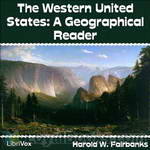 The Western United States: A Geographical Reader
The Western United States: A Geographical Reader
“In preparation of this book the author has had in mind the needs of the upper grammar grades. The subject matter has not been selected with the object of covering the field of Western geography in a systematic manner, but instead the attempt has been made to picture as graphically as may be some of its more striking and interesting physical features, and the influence which these features have exerted upon its discovery and settlement.” (from the Preface of The Western United States) | |
By: United States Arms Control and Disarmament Agency | |
|---|---|
 Worldwide Effects of Nuclear War: Some Perspectives
Worldwide Effects of Nuclear War: Some Perspectives
This is a concise yet thorough explanation of what might happen to our world in the aftermath of a nuclear war. The myriad of potential effects will be global and wide-spread, and the potentials are glazed over in this short work. | |
By: Carlton McCarthy (1847-1936) | |
|---|---|
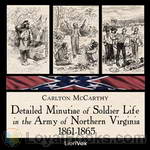 Detailed Minutiae of Soldier Life in the Army of Northern Virginia, 1861-1865
Detailed Minutiae of Soldier Life in the Army of Northern Virginia, 1861-1865
The author, who fought as a private in the Army of Northern Virginia during the Civil War, describes the Confederate soldier’s daily struggles with hunger, illness, fear, and the perils of combat; as well as his pride of service, love of comrades, and courage in the face of overwhelming odds | |
By: John L. Cotter (1911-1999) | |
|---|---|
 New Discoveries at Jamestown
New Discoveries at Jamestown
Chances are, you are reading this because you are aware that Jamestown, Virginia, celebrated its 400th birthday in 2007. It was the first “successful” English settlement in America. Although the colonists eventually moved upriver to be quit of the hard luck and difficult conditions on the small island, they left behind a trove of possessions – used, worn out, or forgotten. Did you ever stop to consider just how many different items you have, need, or use, to live, work, and amuse yourself? Chances are that you would seriously underestimate! But once you put such a list together, another person could tell quite a story about the life you lead... | |
By: Stanton H. King | |
|---|---|
 Dog-Watches at Sea
Dog-Watches at Sea
Stanton H. King was from Barbados and followed his brothers to sea at the age of twelve in 1880. He spent only twelve years at sea for reasons given in this book. Thereafter, he became associated with the Sailors’ Haven, Boston, Massachusetts and became its director. He was also a renowned Chantie singer and, in 1918, King’s Book Of Chanties was published. King views the sailing life from “before the mast”, that is, through the eyes of the common sailor. | |
By: Mary Antin | |
|---|---|
 The Promised Land
The Promised Land
Being a Jew in Russia at the end of the 19th century was not easy at all. Jews were persecuted because of their religion. So the Jews found comfort in their ancient traditions. When Mary Antin’s father decided that keeping to his traditions did not suit him anymore, he found no place in Russia. So he emigrated to America with his family. Life was not easy, though as a child, Mary describes life in Boston as almost perfect. A smart and dignified girl, Mary takes the good things in anything and writes her autobiography with a smile. | |
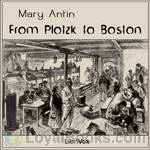 From Plotzk to Boston
From Plotzk to Boston
An intensely personal account of the immigration experience as related by a young Jewish girl from Plotzk (a town in the government of Vitebsk, Russia). Mary Antin, with her mother, sisters, and brother, set out from Plotzk in 1894 to join their father, who had journeyed to the “Promised Land” of America three years before. Fourth class railroad cars packed to suffocation, corrupt crossing guards, luggage and persons crudely “disinfected” by German officials who feared the cholera, locked “quarantine” portside, and, finally, the steamer voyage and a famiily reunited... | |
By: Michel Eyquem de Montaigne (1533-1592) | |
|---|---|
 Essays, Book 1
Essays, Book 1
Michel Eyquem de Montaigne is one of the most influential writers of the French Renaissance, known for popularising the essay as a literary genre and is popularly thought of as the father of Modern Skepticism. He became famous for his effortless ability to merge serious intellectual speculation with casual anecdotes and autobiography—and his massive volume Essais (translated literally as "Attempts") contains, to this day, some of the most widely influential essays ever written. | |
By: P. T. Barnum (1810-1891) | |
|---|---|
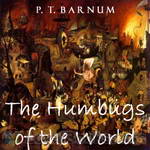 The Humbugs of the World
The Humbugs of the World
P. T. Barnum exposes some of the chief humbugs of the world with his usual entertaining style. He looks at medicine and quacks, ghosts, witchcraft, religious humbugs, money manias, adventurers, personal reminiscences, and much more. | |
By: William Blackstone | |
|---|---|
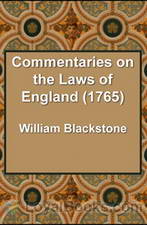 Commentaries on the Laws of England (1765)
Commentaries on the Laws of England (1765)
The Commentaries on the Laws of England are an influential 18th century treatise on the common law of England by Sir William Blackstone, originally published by the Clarendon Press at Oxford, 1765-1769.The Commentaries were long regarded as the leading work on the development of English law and played a role in the development of the American legal system. They were in fact the first methodical treatise on the common law suitable for a lay readership since at least the Middle Ages. The common law of England has relied on precedent more than statute and codifications and has been far less amenable than the civil law, developed from the Roman law, to the needs of a treatise... | |
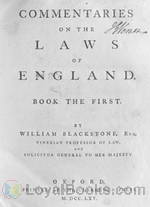 Commentaries on the Laws of England Book the First
Commentaries on the Laws of England Book the First
| |
By: Voltairine de Cleyre | |
|---|---|
 Selected Essays
Selected Essays
Voltairine de Cleyre (1866–1912) was, according to Emma Goldman, “the most gifted and brilliant anarchist woman America ever produced.” Today she is not widely known as a consequence of her short life. De Cleyre was especially influenced by Thomas Paine, Mary Wollstonecraft and Clarence Darrow. After the hanging of the Haymarket protesters in 1887, she became an anarchist. “Till then I believed in the essential justice of the American law of trial by jury,” she wrote in an autobiographical essay, “After that I never could”... | |
 Selected Works: Haymarket Speeches
Selected Works: Haymarket Speeches
Voltairine de Cleyre (November 17, 1866 – June 20, 1912) was an American anarchist. She was skilled in many subjects and wrote essays, poems, letters, sketches, stories and speeches. These are her selected Haymarket speeches. | |
 Selected Letters, Sketches and Stories
Selected Letters, Sketches and Stories
Voltairine de Cleyre (November 17, 1866 – June 20, 1912) was an American anarchist. She was skilled in many subjects and wrote essays, poems, letters, sketches, stories and speeches. These are her selected letters, sketches and stories. | |
By: Friedrich Kerst | |
|---|---|
 Mozart, The Man and the Artist as Revealed in His Own Words
Mozart, The Man and the Artist as Revealed in His Own Words
Wolfgang Amadeus Mozart. His name is one of the most recognizable names in history and one of the most enduring of composers. At age 5, this “wunderkinder” took to the stage and began his life as a prolific and celebrated creator-genius of such luminous works the world has not known since. This collection of morsels taken from his personal letters is engaging and gives a look into the mind of the boy wonder. Was he mad? Was he miraculous? | |
By: William H. Prescott | |
|---|---|
 History of the Conquest of Mexico by William H Prescott (d. 1859)
History of the Conquest of Mexico by William H Prescott (d. 1859)
Much have I travell’d in the realms of gold,And many goodly states and kingdoms seen;Round many western islands have I beenWhich bards in fealty to Apollo hold.Oft of one wide expanse had I been toldThat deep-brow’d Homer ruled as his demesne;Yet never did I breathe its pure sereneTill I heard Chapman speak out loud and bold.Then felt I like some watcher of the skiesWhen a new planet swims into his ken;Or like stout Cortez, when with eagle eyesHe star’d at the Pacific – and all his menLook’d at each other with a wild surmise -Silent, upon a peak in Darien... | |
By: Richard Burton Deane (1848-1940) | |
|---|---|
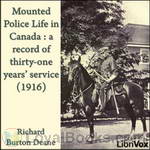 Mounted Police Life in Canada : a record of thirty-one years' service (1916)
Mounted Police Life in Canada : a record of thirty-one years' service (1916)
Learn more about the famous and respected Royal Canadian Mounted Police. This book is the personal recollections of one ‘Mountie’; his life, experiences and trials as an officer in a new frontier – The Canadian Northwest. | |
By: P. R. Kincaid | |
|---|---|
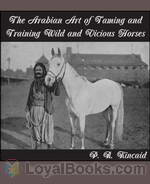 The Arabian Art of Taming and Training Wild and Vicious Horses
The Arabian Art of Taming and Training Wild and Vicious Horses
Back in the day before automobiles, a good horse trainer and veterinarian was the equivalent of “Mr Goodwrench”. A badly behaving or unhealthy equine was equivalent to breaking down on the highway or running out of gas on a lonely stretch of highway somewhere in Utah. My sources tell me that most of the training methods are ok, but stay away from the medical tips unless you are prepared to become the poster boy or girl for the local SPCA. Listen with tongue in cheek, and check with a professional before attempting any of these techniques on a real animal. | |
By: Edwin F. Benson | |
|---|---|
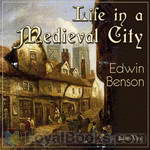 Life in a Mediaeval City, Illustrated by York in the XVth Century
Life in a Mediaeval City, Illustrated by York in the XVth Century
A short and gentle overview of mediaeval life in a large city. It lightly covers the class structure of society, local government, guilds, pageantry and punishment. The author has an easy, rhythmic style which leaves the reader wanting to find out more. | |
By: Charles Foster Kent | |
|---|---|
 The Making of a Nation: The Beginnings of Israel's History
The Making of a Nation: The Beginnings of Israel's History
Charles Foster Kent was one of the premier scholars in Jewish Studies at the turn of the century. He was particularly well-known for his comparisons of early Christianity to its Jewish roots. He also wrote several distinguished histories of Israel, the Jewish people, Torah studies, and the development of oral Torah. | |
By: Rose Wilder Lane (1886-1968) | |
|---|---|
 Henry Ford's Own Story
Henry Ford's Own Story
Rose Wilder Lane was a newspaper reporter, free-lance writer, political activist, and the daughter of Laura Ingalls Wilder, author of the "Little House" series of popular children's books. In this biography of Henry Ford, Ms. Lane worked directly with Ford to tell his story from his birth to his founding of the Ford Motor Company and his use of modern assembly lines to mass produce his cars. | |
By: William F. Cody | |
|---|---|
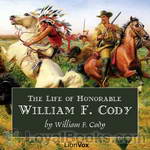 The Life of Honorable William F. Cody
The Life of Honorable William F. Cody
The life and adventures of Honorable William F. Cody–Buffalo Bill–as told by himself, make up a narrative which reads more like romance than reality, and which in many respects will prove a valuable contribution to the records of our Western frontier history. While no literary excellence is claimed for the narrative, it has the greater merit of being truthful, and is verified in such a manner that no one can doubt its veracity. The frequent reference to such military men as Generals Sheridan, Carr, Merritt, Crook, Terry, Colonel Royal, and other officers under whom Mr... | |
By: Stamp Act Congress of 1765 | |
|---|---|
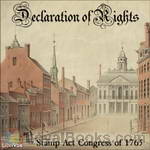 Declaration of Rights
Declaration of Rights
On June 8, 1765 James Otis, supported by the Massachusetts Assembly sent a letter to each colony calling for a general meeting of delegates. The meeting was to be held in New York City in October. Representatives from nine colonies met in New York. Though New Hampshire, Virginia, North Carolina and Georgia did not send delegates, the Assemblies of those missing colonies nonetheless agreed to support the works of the Congress. The meetings were held in Federal Hall in New York, and the delegates assembled on October 2... | |
By: Margaret Warner Morley (1858-1923) | |
|---|---|
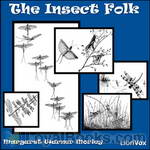 The Insect Folk
The Insect Folk
Through delightful outings with her students, a teacher introduces her class to the fascinating world of insects. She encourages her students to observe and ask questions. This is a wonderful science text for young children. | |
By: Cornelia Mee | |
|---|---|
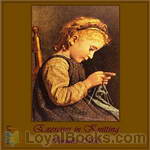 Exercises in Knitting
Exercises in Knitting
Mrs. Mee, her husband, and her sister ran a yarn and needlework import/warehouse business in Bath, England. Her books primarily contain practical everyday items that knit up quickly with the busy homemaker in mind. At this time, published knitting “receipts” did not contain abbreviations and were laborious to use. They were, however, rich in error! Later in her career, due to circumstances of war and the resulting social stress and poverty, many of her knitting books were printed for ladies’ charitable societies, which used her knitting “receipts” to clothe the poor mill workers who were out of work due to the American Civil War and the embargo of cotton. | |
By: Isabella L. Bird | |
|---|---|
 The Englishwoman in America
The Englishwoman in America
Isabella Bird travels abroad in Canada and the United States in the 1850s. As an Englishwoman and a lone female, she travels as far as Chicago, Prince Edward Island, and Cincinatti. Her observations on the trials and tribulations of the journeys are astute, if formed by her place and time in history. Adventures with pickpockets, omnibuses, cholera, and rat invested hotels deter her not. (Sibella Denton) | |
By: Lao Tzu | |
|---|---|
 Laotzu's Tao and Wu Wei
Laotzu's Tao and Wu Wei
The classic of the Way and of High Virtue is the Tao Teh Ching. Its author is generally held as a contemporary of Confucius, Lao Tzu, or Laozi. The exact date of the book’s origin is disputed. The book is divided into two parts, the Upper Part and the Lower Part. The Upper Part consists of chapters 1-37, and each chapter begins with the word “Tao,” or the Way. The Lower Part consists of chapters 38-81, and each chapter begins with the words “Shang Teh,” or High Virtue. This 1919 edition names the Lower Part as the Wu Wei, or translated variously as “not doing,” “non-ado,” or “non-assertion... | |
By: George L. Apperson (1857-1937) | |
|---|---|
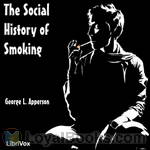 The Social History of Smoking
The Social History of Smoking
This work tells the history of smoking in England from the social point of view. Thus it does not deal with the history of tobacco growing or tobacco related manufacture, but is rather the story of how smoking has fitted in with the fashions and customs throughout the ages, and the changes in the attitude of society towards smoking. | |
By: St. Ignatius of Antioch | |
|---|---|
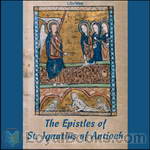 The Epistles of Ignatius
The Epistles of Ignatius
Ignatius of Antioch penned these letters to churches (Ephesians, Magnesians, Trallians, Romans, Philadelphians, and Smyrnaeans) and Polycarp on his way to martyrdom. Ignatius was an apologist for the Episcopal style of church government (as opposed to sole rule by a council of presbyters) which developed in the late first or early second century. Eager to die in imitation of his Savior, it was Ignatius who wrote this to the Roman church: “I am God’s wheat, and I am ground by the teeth of wild beasts that I may be found pure bread [of Christ].” | |
By: David Barrows | |
|---|---|
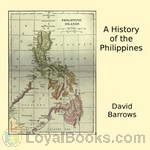 A History of the Philippines
A History of the Philippines
This book is one of the earliest studies of Philippine history by an American scholar. In preparation for this book, the author conducted ethnological studies of indiginous island tribes after the American war in the Philippines. Since this book was intended for the Philippine reader, the author nicely places the history of the Islands into the broader context of European and American history. | |
By: Anna Harriette Leonowens | |
|---|---|
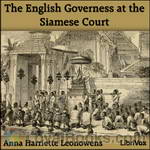 The English Governess at the Siamese Court
The English Governess at the Siamese Court
1862 Anna Leonowens accepted an offer made by the Siamese consul in Singapore, Tan Kim Ching, to teach the wives and children of Mongkut, king of Siam. The king wished to give his 39 wives and concubines and 82 children a modern Western education on scientific secular lines, which earlier missionaries’ wives had not provided. Leonowens sent her daughter Avis to school in England, and took her son Louis with her to Bangkok. She succeeded Dan Beach Bradley, an American missionary, as teacher to the Siamese court... | |
By: Eliza P. Donner Houghton (1843-1922) | |
|---|---|
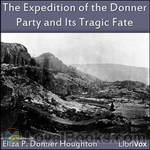 The Expedition of the Donner Party and Its Tragic Fate
The Expedition of the Donner Party and Its Tragic Fate
The Donner Party was a group of California-bound American settlers caught up in the “westering fever” of the 1840s. After becoming snowbound in the Sierra Nevada in the winter of 1846–1847, some of the emigrants resorted to cannibalism. Although this aspect of the tragedy has become synonymous with the Donner Party in the popular imagination, it actually was a minor part of the episode. The author was about 4 at the time. The first part of the book accounts the tragic journey and rescue attempts; the last half are reminiscences of the child orphan, passed from family to family while growing up. | |
By: Anonymous, attributed to Kathleen Luard (c.1872) | |
|---|---|
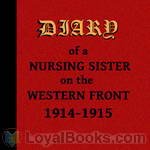 Diary of a Nursing Sister on the Western Front 1914-1915
Diary of a Nursing Sister on the Western Front 1914-1915
The title is, I think, self explanatory. The nurse in question went out to France at the beginning of the war and remained there until May 1915 after the second battle of Ypres when she went back to a Base Hospital and the diary ceases. Although written in diary form, it is clearly taken from letters home and gives a vivid if sometimes distressing picture of the state of the casualties occasioned during that period. After a time at the General Hospital in Le Havre she became one of the three or four sisters working on the ambulance trains which fetched the wounded from the Clearing Hospitals close to the front line and took them back to the General Hospitals in Boulogne, Rouen and Le Havre. | |